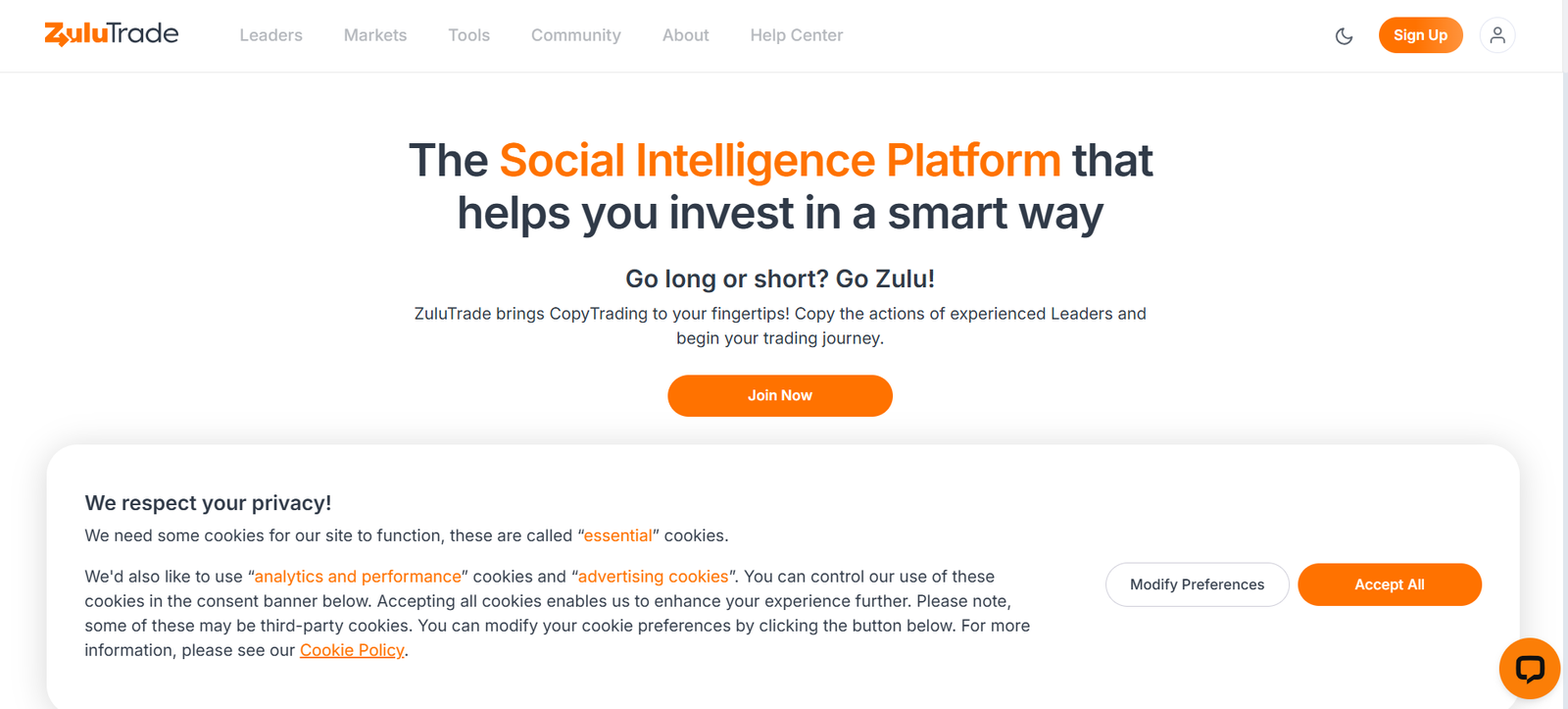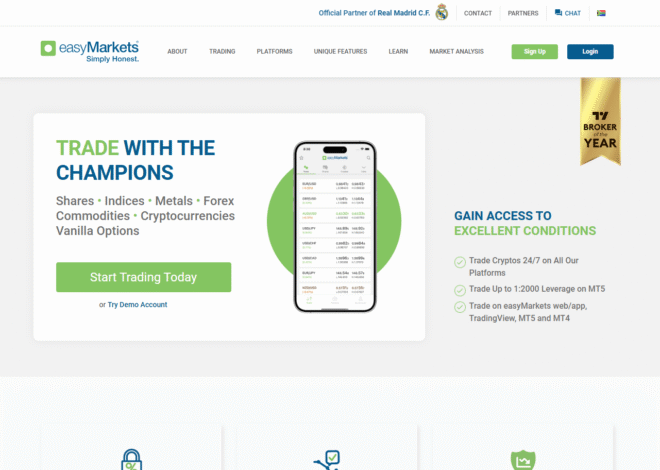
ZuluTrade EXPOSED: Read This Critical Warning
The promise of easy profits in online trading is a siren song for many, drawing in hopeful investors with dreams of financial freedom. Yet, beneath the surface of slick marketing and alluring testimonials, some platforms hide a darker reality. Our investigative team has turned its spotlight on ZuluTrade, a well-known name in the auto-trading and social trading space, and what we’ve uncovered raises serious questions. This article serves as an urgent public warning, detailing a disturbing pattern of user complaints, regulatory red flags, and operational practices that demand immediate scrutiny. Before you entrust your hard-earned money to ZuluTrade, we urge you to read every word of this critical investigation.
Regulatory Warnings and Compliance Issues
One of the most fundamental pillars of trust in the financial industry is robust regulation. For a platform dealing with investors’ money, operating under the watchful eye of reputable financial authorities is non-negotiable. Our investigation into ZuluTrade reveals a troubling landscape concerning its regulatory status, or lack thereof, in various jurisdictions. This absence of stringent oversight is a colossal red flag that should make any potential investor pause.
Unregistered Operations and Licensing Gaps
While ZuluTrade might present itself as a global platform, a deeper dive into its operational licenses often uncovers significant gaps. Many user reports and financial watchdog alerts point to ZuluTrade facilitating trading without being properly licensed or regulated in key markets where its users reside. This isn’t a minor oversight; it means that in the event of a dispute, loss of funds, or platform insolvency, investors have little to no legal recourse or protection from financial compensation schemes typically offered by regulated entities. The platform’s structure, often relying on connecting users to various third-party brokers, can further complicate accountability, creating a labyrinth where responsibility is easily diffused.
The lack of direct regulatory authorization for its auto-trading services in several regions leaves users dangerously exposed. Reputable financial authorities like the FCA in the UK, ASIC in Australia, or FINRA in the US impose strict rules designed to protect consumers, including capital adequacy requirements, segregation of client funds, and transparent dispute resolution mechanisms. When a platform like ZuluTrade operates outside these frameworks, it effectively sidesteps these vital protections, putting client funds at immense risk.
Lack of Oversight: A Red Flag for ZuluTrade Users
The absence of a primary, overarching regulator for ZuluTrade’s core auto-trading services means there’s no single, powerful entity ensuring fair play. This vacuum of oversight allows for practices that would be strictly prohibited in regulated environments. Without independent auditors scrutinizing their operations, there’s a heightened risk of conflicts of interest, unfair trading conditions, or even outright manipulation. Investors are left to trust the platform’s internal processes, which, as numerous complaints suggest, are often opaque and unresponsive. This lack of accountability undermines the very foundation of trust required for financial transactions. This critical regulatory deficiency is a recurring theme in warnings issued by various bodies and should be a primary concern for anyone considering ZuluTrade.
Analysis of User Complaints: A Pattern of Dissatisfaction
Beyond the technicalities of regulation, the true measure of a platform often lies in the experiences of its users. Our investigation into ZuluTrade has unearthed a consistent and alarming pattern of complaints across various independent review platforms, forums, and consumer advocacy sites. These aren’t isolated incidents but rather a systemic reflection of deep-seated problems within the platform’s operations and service delivery.
Allegations of Manipulative Trading Practices
One of the most serious categories of complaints revolves around allegations of manipulative trading practices. Users frequently report discrepancies between their expected trade outcomes and the actual results, particularly when relying on auto-trading features. There are claims of trades being executed at unfavorable prices, slippage far beyond market norms, and even instances where trades were allegedly closed prematurely or without clear justification. For a platform built on the promise of automated, optimized trading, these accusations strike at the very heart of its value proposition.
Investors have detailed scenarios where successful signal providers on ZuluTrade appear to generate profits on demo accounts, only for these strategies to fail dramatically on live accounts. This raises questions about the transparency and integrity of the performance data presented by ZuluTrade, suggesting a potential for misleading representations that lure unsuspecting investors. Such practices, if proven, are not merely poor service; they verge on financial fraud, designed to extract capital from unsuspecting users.
Poor Customer Support: Leaving Investors Stranded
Compounding the issues of alleged trading manipulation is the widely reported inadequacy of ZuluTrade’s customer support. When users encounter problems – be it with trade execution, account discrepancies, or the critical withdrawal process – they expect timely and effective assistance. However, a significant volume of complaints highlights unresponsive, unhelpful, or outright absent customer service.
Users describe long wait times, generic unhelpful responses, and a general inability to resolve pressing issues. This lack of support is particularly egregious given the financial nature of the services provided. When an investor’s money is at stake, being met with silence or bureaucratic hurdles can be incredibly distressing and financially damaging. This pattern suggests a deliberate strategy to make problem resolution difficult, potentially discouraging users from pursuing their complaints further, especially concerning frozen funds or delayed withdrawals.
Deceptive Marketing Tactics and Misleading Performance Claims
The initial attraction to platforms like ZuluTrade often stems from their marketing. Unfortunately, our investigation reveals that ZuluTrade employs tactics that can be described as highly deceptive, preying on the hopes of quick and easy financial gains. The promises made often stand in stark contrast to the reality experienced by many users, leading to significant financial losses.
The Illusion of Guaranteed Returns
ZuluTrade, like many social and auto-trading platforms, heavily promotes the idea of ‘copying’ successful traders to achieve similar returns. While they may include disclaimers about past performance not guaranteeing future results, the overall marketing narrative often creates an illusion of guaranteed or highly probable returns. Testimonials, leaderboards showcasing top-performing signal providers, and promotional materials frequently highlight extraordinary profit percentages, painting a picture of effortless wealth accumulation.
However, the reality is far more complex and risky. The past performance of a trader, even if genuine, does not account for market shifts, changes in strategy, or the inherent volatility of financial markets. Many users report that once they commit real capital, the copied strategies underperform significantly, or worse, lead to rapid and substantial losses. The illusion of guaranteed returns is a dangerous trap, encouraging investors to take on risks they neither understand nor can afford. This is a common tactic used by fraudulent operations to draw in new capital.
Unrealistic Profit Promises and High-Pressure Sales
Beyond subtle illusions, some marketing efforts associated with ZuluTrade border on outright unrealistic profit promises. While the platform itself might maintain a facade of neutrality, the signal providers it promotes, or third-party affiliates, often engage in aggressive promotion of highly improbable returns. These promises can be amplified through various online channels, creating a sense of urgency and fear of missing out.
Such high-pressure tactics, often seen in boiler room scams, aim to bypass rational decision-making. Investors are encouraged to deposit significant amounts quickly, often without adequate understanding of the underlying risks or the mechanics of the trading strategies being copied. This approach is highly predatory and is a hallmark of platforms more interested in acquiring deposits than in fostering sustainable, responsible trading.
Withdrawal Problems: A Major Red Flag for ZuluTrade
Perhaps the most alarming and frequently reported issue concerning ZuluTrade, and a classic indicator of potential scam operations, is the pervasive problem with withdrawals. A legitimate financial platform ensures that clients can access their funds promptly and without undue hurdles. The numerous complaints about ZuluTrade’s withdrawal processes paint a very different, deeply concerning picture.
Funds Held Hostage: The Struggle to Access Capital
Many users have reported experiencing significant difficulties, delays, and outright refusal when attempting to withdraw their funds from ZuluTrade. This issue spans across various amounts, from modest profits to substantial initial deposits. Investors recount a frustrating cycle of unacknowledged requests, vague explanations, and an endless loop of documentation demands. The common thread is a systemic challenge in retrieving money that rightfully belongs to the users.
These delays are not merely inconvenient; they can be financially devastating for individuals who might need access to their capital. The inability to withdraw funds is a critical red flag, often associated with fraudulent brokers who make it easy to deposit money but nearly impossible to retrieve it. This practice effectively holds users’ capital hostage, creating immense stress and financial insecurity. This is a primary indicator that ZuluTrade may be operating as a deceptive scheme rather than a legitimate trading platform.
Opaque Withdrawal Processes and Hidden Fees
Adding insult to injury, ZuluTrade’s withdrawal processes are often described as opaque and confusing. Users report a lack of clear instructions, constantly changing requirements, and an absence of transparency regarding processing times. Furthermore, there are numerous allegations of hidden fees or unexpected charges being levied during the withdrawal process, further reducing the amount clients can retrieve. These fees are often not clearly disclosed upfront, catching users by surprise and adding to their frustration.
In some cases, users claim that their withdrawal requests are simply ignored, or they are pressured to keep their funds within the platform, sometimes with promises of higher returns if they reconsider. Such tactics are highly unethical and indicative of a platform struggling with liquidity or, worse, intentionally preventing users from accessing their money. Any platform that makes depositing easy but withdrawing arduous should be treated with extreme caution. This experience is unfortunately common among those who have tried to recover their funds from ZuluTrade.
The Auto-Trading Trap: When Automation Goes Wrong
ZuluTrade’s core offering revolves around auto-trading, allowing users to automatically copy the trades of ‘signal providers’. While the concept itself isn’t inherently flawed, its implementation on ZuluTrade, combined with the lack of robust oversight, creates a dangerous trap for unsuspecting investors. The promise of passive income often obscures the profound risks involved.
Unvetted Signal Providers and Risky Strategies
The platform’s model relies heavily on the quality and integrity of its signal providers. However, evidence suggests that the vetting process for these providers on ZuluTrade may be insufficient or non-existent. Many providers showcase impressive historical performance, but these figures can be misleading. They might be generated on demo accounts, use aggressive high-risk strategies that are unsustainable in real market conditions, or even be manipulated to appear more profitable than they are.
Investors often lack the expertise to thoroughly evaluate these providers, blindly trusting the platform’s presentation. This can lead them to copy strategies that employ excessive leverage, engage in ‘martingale’ systems (doubling down on losing trades), or other high-risk approaches that can quickly wipe out an entire account. When the automated system executes these volatile trades, users have limited control, effectively handing over their financial destiny to an unvetted third party. [Internal Link to How to Spot a Trading Scam] provides more details on how to identify such risky propositions.
Lack of Control: Your Money, Their Decisions
The fundamental issue with auto-trading on ZuluTrade is the inherent lack of control once a user decides to copy a signal provider. While settings might allow for some risk management parameters, the day-to-day trading decisions are entirely out of the investor’s hands. This means that if a signal provider suddenly changes their strategy, makes reckless trades, or experiences a prolonged losing streak, the investor’s capital can diminish rapidly without their immediate intervention.
This hands-off approach, marketed as a benefit, becomes a significant liability when the system fails to perform as advertised or when fraudulent activity is suspected. The investor becomes a passive observer of their capital being eroded, often unable to stop the bleeding in real-time due to platform limitations or unresponsive support.
Protecting Yourself: Steps to Take Against ZuluTrade
If you are currently involved with ZuluTrade or suspect you have been a victim of their practices, immediate action is crucial. Do not delay in taking steps to protect your remaining assets and seek recourse.
Document Everything: Your Evidence is Crucial
The first and most critical step is to meticulously document every interaction, transaction, and communication you have had with ZuluTrade. This includes:
- All correspondence (emails, chat logs, support tickets).
- Screenshots of your account balance, trading history, and withdrawal requests.
- Records of deposits made, including bank statements or crypto transaction IDs.
- Any promotional materials or promises made by ZuluTrade or its associated signal providers.
This comprehensive documentation will serve as vital evidence should you need to pursue a complaint with regulatory bodies, consumer protection agencies, or legal counsel. Without clear records, your ability to prove misconduct will be severely hampered.
Reporting Financial Misconduct to Authorities
Do not hesitate to report your experience to the relevant financial authorities in your jurisdiction. While ZuluTrade may operate in a regulatory gray area, widespread complaints can trigger investigations or warnings that protect future victims.
- Contact Your Local Financial Regulator: Even if ZuluTrade isn’t directly regulated by them, they can often provide guidance or add the entity to a warning list. Examples include the Financial Conduct Authority (FCA) in the UK, the Australian Securities and Investments Commission (ASIC), or equivalent bodies in your country.
- Report to Consumer Protection Agencies: Organizations dedicated to consumer protection can also log your complaint and, in some cases, provide assistance or advice.
- File a Police Report: If you suspect outright fraud, file a report with your local police force.
- Seek Legal Advice: Consult with a lawyer specializing in financial fraud or consumer law to explore your options for recovery.
Your report, combined with others, can build a case against platforms engaging in deceptive practices and help prevent further financial harm to others. You can find more information on reporting financial fraud at ASIC Consumer Alerts.
Comparing ZuluTrade to Reputable Platforms
Understanding the significant risks associated with ZuluTrade becomes even clearer when comparing its operations and user experience to those of genuinely reputable, regulated trading platforms. The contrast highlights precisely what is missing and why due diligence is paramount.
What Legitimate Brokers Offer
Legitimate brokers, regulated by tier-one authorities, offer several fundamental protections and services that ZuluTrade appears to lack:
- Segregated Client Funds: Your money is held in separate accounts from the broker’s operational funds, meaning it’s protected even if the broker goes bankrupt.
- Investor Compensation Schemes: Many regulated jurisdictions offer schemes that protect a portion of your funds in the event of broker insolvency.
- Transparent Fees and Operations: All fees, charges, and trading conditions are clearly disclosed upfront, with no hidden surprises during withdrawals.
- Robust Customer Support: Accessible, responsive, and knowledgeable customer service is a standard, not an exception.
- Fair Trade Execution: Regulated brokers are required to ensure fair and timely execution of trades, minimizing slippage and manipulation.
- Educational Resources and Risk Warnings: They actively educate users about risks and do not promote unrealistic profit expectations.
The Importance of Due Diligence
The stark differences underscore the critical importance of conducting thorough due diligence before committing any funds to an online trading platform. Always verify a platform’s regulatory status with the relevant authorities directly, not just by trusting claims on their website. Research independent reviews, but be wary of overly positive or clearly fabricated testimonials. Understand the risks involved, especially with high-leverage products and auto-trading, and never invest money you cannot afford to lose. For further reading on the dangers of online trading scams, consider this article: Reuters on Online Trading Scams.
Conclusion: A Final Warning Against ZuluTrade
Our comprehensive investigation into ZuluTrade reveals a troubling landscape characterized by significant regulatory ambiguities, a pervasive pattern of user complaints regarding manipulative practices, unresponsive customer support, and, most critically, severe and widespread withdrawal issues. The deceptive marketing tactics and the inherent risks of its auto-trading model, coupled with inadequate vetting of signal providers, create an environment ripe for investor exploitation.
The red flags are too numerous and too severe to ignore. ZuluTrade’s operational model appears to prioritize attracting deposits over ensuring client safety and fund accessibility. For these reasons, our strong recommendation is to avoid ZuluTrade entirely. The potential for substantial financial loss, coupled with the immense frustration of being unable to access your own money, far outweighs any perceived benefits. Protect your investments by choosing platforms that are transparently regulated, have a proven track record of integrity, and prioritize client protection above all else. If you have been affected, we urge you to document your experiences and report them to financial authorities immediately.
External Links Reference Table
| Anchor Text | URL |
|---|---|
| ASIC Consumer Alerts | https://asic.gov.au/about-asic/news-centre/consumer-alerts/ |
| Reuters on Online Trading Scams | https://www.reuters.com/markets/europe/online-trading-scams-target-vulnerable-investors-2023-10-26/ |
| FCA Warning List | https://www.fca.org.uk/news/warnings |


